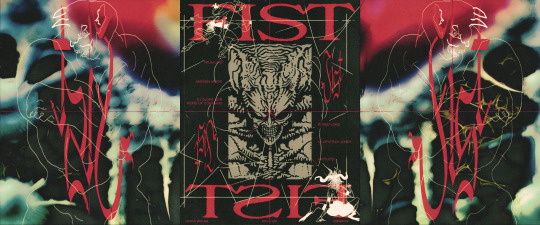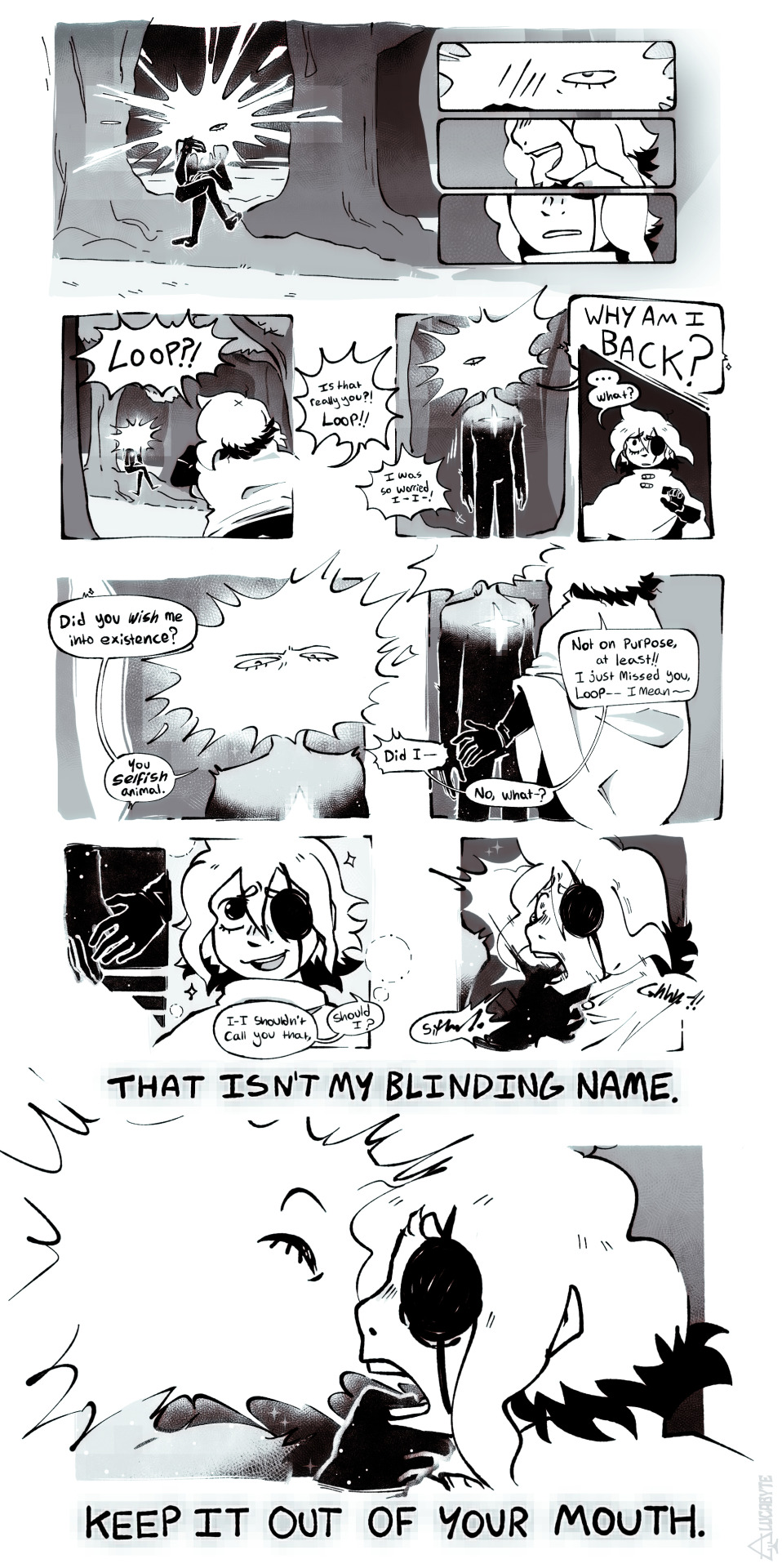#truncate
Explore tagged Tumblr posts
Text

The Advent - Passive Aggressive
7 notes
·
View notes
Video
youtube
Truncate - Random Acid [4TRK]
2 notes
·
View notes
Text
Okay, so, like, let’s tawk abowt “tronkate.” Now, tronkatin iz a super fancy werd fer, like, cuttin’ stuff off. Like, wot ya doo wen ya got too much of sumthin an yer like “NAH, I don’t need ALL dat.” So ya just chop da end of it, like BLAH! Gone! Tronkate.
Now, sum peeple mite say tronkatin is "tech-nick-al." But nah! Tronkate is reel easy if ya got da right ideas abowt it. Like, let’s say u got a line of werds n it gose on n on n on, n yer brane is like, "NOPE, datz way too much!" So ya just tronkate it – snip snip! – now u got a lil’ piece insted of da hole big thing. Shorter, sim-pul-er, y’know? Like takin’ a looooong hotdog n choppin' it in haf so it fits da bun.
An tronkatin’ isn’t just fer werds n sentinces n stuff. Nope. U can tronkate numbrs too. Like say ya got 3.14159265358979...blah blah blah, n yer like, “NOPE, I ain’t got no time fer all dat.” So ya tronkate it, sayin “3.14” iz gud enuff, no need to be fancy. Itz da fast way ta math, reely.
So, lesson of today: TRONKATE means just TAKIN' STUFF n MAKIN' IT SMALLER cuz who needs ALL of it anyways?
2 notes
·
View notes
Text
The ruin lies in a single misguided thought: More is always better.
In pursuit of wealth and growth, some have blinded themselves to reality. The push to cut costs, boost numbers, and chase endless gains has a price—one that’s hidden but costly. When decisions favor profit over people, the consequences reach far and wide. Factories close to save on expenses, but entire communities suffer. Workers lose jobs, businesses vanish, and local economies crumble, all because the numbers on a distant spreadsheet look better for it.
Consider the “efficiencies” that strip workers of fair wages or cut corners in critical safety. In the short term, these cuts save money. In the long term, they create vulnerabilities, crippling industries and harming countless lives. Wealth gets concentrated, yet the broader economy weakens.
The truth is simple: building on shaky foundations only leads to collapse.
#truncate#evidence#facts#honesty#knowledge#reality#research#science#scientific-method#study#truth#wisdom
2 notes
·
View notes
Text
People just love dodging responsibility.
Oh yes, in a world where everyone is eager to point fingers, shrug off blame, and duck any accountability, it’s almost as if taking responsibility has become an ancient, forgotten art. But hey, who needs integrity, right? Why bother with such a petty little detail like accountability? It’s only the thing that keeps teams functional, relationships honest, and, you know, society itself from imploding.
Holding people accountable isn’t just a fun little exercise in micromanaging. It’s the backbone of trust. When people are accountable, they’re actually—brace yourself—forced to own what they say and do. Wild concept, I know. But think about it: imagine a world where promises are kept, goals are met, and people can actually rely on each other. If that sounds too radical, you might be overdue for a reality check.
See, accountability is like a mirror. When people stand in front of it, they’re forced to confront who they really are, what they’ve really done, and, ultimately, who they’re becoming. When no one’s there to call out their nonsense, they’re free to believe their own delusions. And trust me, a lack of accountability breeds a level of arrogance so dense it could rival a black hole.
So, why does it matter? Because accountability keeps people real. It keeps teams focused, relationships strong, and builds a foundation you can actually stand on. The alternative? Chaos, confusion, and a lot of half-baked excuses. Holding people accountable isn’t just important; it’s everything.
0 notes
Text
Headline: "How Russia Has Ushered in the Golden Age of Information Pollution (and Why Verifiable Journalism Is the Last Bastion of Sanity)"
Russia has ushered in a golden age of information pollution, and it’s not by mistake. Forget the good old days when warfare required armies and tanks; in 2023, all it takes is a smartphone and a decent grasp of Photoshop. Russia has perfected the art of disinformation, permeating every digital nook and cranny of the Western psyche, sowing discord with the speed and subtlety of a finely-tuned algorithm.
Social media platforms—our illustrious town squares of intellectual discourse—have transformed into unwitting agents of foreign propaganda. Russian state-backed disinformation campaigns exploit every social platform from TikTok to Twitter, swarming with pseudo-news and fabricated scandal, meticulously engineered to prey on the average scroll-happy citizen's cognitive vulnerabilities. Think bots, troll farms, and "news" articles painstakingly crafted to appear almost legitimate, yet as genuine as a neon-blue plastic diamond. They’re laughable at first glance, but therein lies the genius: saturate the infosphere with enough rot, and the line between real and fabricated becomes diaphanously blurred.
Why, you ask, do they do this? It's disturbingly simple. Fragmented, distrustful societies are incapable of coherent opposition. By creating a cacophony of “alternative facts,” Russia isn't simply filling our screens with drivel; they’re strategically undermining our collective ability to discern reality. Each meme, each fake report, is a calculated drop in the toxic pool of misinformation, dissolving public trust in traditional media and reputable journalism, which is precisely where we should turn.
The irony? Our sole defense against this informational maelstrom is the very thing we’ve begun to distrust: verifiable, principled journalism. Only by anchoring our minds in thoroughly fact-checked reporting can we even begin to navigate the swamp of contrived narratives and performative outrage. Real journalism, as archaic as it sounds, relies on an antiquated practice known as "research." You know, a systematic examination of evidence—fact-checking, expert consultation, contextual analysis—everything Russia’s troll armies couldn’t care less about.
Truncate the noise, and what remains? A realization that the platforms we rely on for "connection" are conduits for disinformation, and the salvation lies in what we've neglected—investigative journalism driven by accuracy and accountability. This isn’t merely a suggestion; it’s survival. The reality is stark: If we continue to gorge ourselves on the digital equivalent of cotton candy, concocted in Moscow’s media laboratories, we will soon find ourselves in a world where truth is not merely dead but a forgotten relic.
#truncate#bacteria#climate change#disease#evidence#facts#honesty#immunity#knowledge#pathogens#reality#research#science#scientific-method#study#truth#vaccine#virus#wisdom
0 notes
Text
Russia’s war on the West isn’t only on the battlefield; it’s on our screens, too. The strategy is powerful, invisible, and everywhere—disinformation pumped through social media channels, designed to divide, confuse, and undermine the very fabric of democracy. It’s slick, it’s fast, and it’s deadly to the truth.
This isn’t some distant cyber battle; it’s happening in real time. You see it every day, wrapped up as news, disguised as fact, infiltrating every corner of the internet. Fake profiles, fake stories, and expertly crafted lies are Russia’s weapons in a silent war to control minds and erode trust. Their disinformation campaigns exploit the very tools we use to stay connected, turning them into weapons against our own societies.
But here’s the antidote: verifiable journalism. Trusted, fact-checked reporting acts like a shield, protecting against these attacks by focusing on evidence, context, and truth. It’s not glamorous, it’s not viral, but it’s solid—and it’s essential. With reliable journalism, we can untangle lies, cut through the noise, and reclaim control over what we know to be true.
This is the frontline, and it’s not going anywhere. We must be vigilant, informed, and discerning. In a world drowning in disinformation, truth isn’t just a value—it’s our strongest defense.
#truncate#climate change#climate#evidence#facts#honesty#knowledge#reality#research#science#scientific-method#study#truth#wisdom
0 notes
Text
They want us divided. That's the truth no one wants to admit.
The anger, the fear, the outrage—they’re not accidents. Powerful forces out there, with vast resources and deep pockets, are working day and night to keep us in our boxes. Left versus right. Us versus them. They know if we keep yelling at each other, we won’t notice what’s happening behind the scenes. And make no mistake, they like it that way.
Why? Division is profitable. Division is power. It keeps us distracted, focused on each other instead of on the real issues. They push stories that twist reality, drop headlines designed to spark a war in every comment section, and seed rumors that have us doubting each other’s humanity. When was the last time you read the news and felt anything but anger or despair? Exactly. They’ve got us right where they want us.
But we don’t have to play along. We can choose to break this cycle. We can see beyond the noise and the lies. We don’t have to be pawns in their game. We can talk, we can listen, we can find common ground. It won’t be easy. They’ll keep pushing, keep whispering that the other side can’t be trusted. But that’s just more of the same poison they feed us every day.
This isn’t about right or left anymore. It’s about whether we let ourselves be manipulated, whether we let them pull the strings while we dance to their tune. So here’s the plea: don’t let them win. Hold on to the hope that we can come together, that we can rise above their schemes and find our way back to each other.
Let’s stop their games by refusing to play.
#truncate#evidence#facts#honesty#knowledge#reality#research#science#scientific-method#study#truth#wisdom
0 notes
Text
The truth is, far-right ideologies thrive on chaos.
In the darkness of anger, they whisper of "order" and "control," but their methods reek of violence. They thrive on intimidation, on fear, on silencing the very freedoms they claim to defend. Their loudest voices call for unity while wielding tactics that divide. Make no mistake—violence is their tool, but it's not a tool of freedom. It's a hammer meant to smash dissent and carve out a path to power, plain and simple.
Far-right movements have always had a strange obsession with control, yet their methods couldn’t be further from stability. Their rallies are more about shouting down opposition than building up communities. Their actions, often marked by hostility, only serve to weaken the foundations of democracy, choking off discourse and replacing it with fear. This isn't strength; it's insecurity, dressed up in the costume of patriotism.
Every incident of aggression becomes another crack in the fragile bridge of mutual trust. The extremists might think that intimidation keeps them in control, but it only alienates the majority and pushes communities further apart. Violence doesn’t create change—it just leaves rubble behind.
The truth is, violence doesn’t bring them closer to a stable world; it brings them closer to a fractured one. Their agenda, though loud and divisive, is fundamentally weak because it can’t stand on its own two feet without a scapegoat to trample. They preach stability but deliver strife, all while claiming they’re protecting “values.” In the end, far-right ideology isn’t the protector of freedom—it’s the thief at the door, taking what it can through brute force, knowing it can’t win by reason alone.
0 notes
Text
Ah, the modern-day treasure hunt: spotting narcissists without getting caught in their sticky web of self-admiration. It’s easier than you’d think—just a simple matter of letting them do what they do best: talk. Give them an inch of attention, and they'll take a mile, using your ears as their personal echo chamber. Nod, smile, and occasionally throw in a "wow, that’s amazing!" (Trust me, it never fails.) Narcissists live to be seen, heard, and worshiped. Just don’t expect them to ask you a single thing about yourself unless they’re faking interest to loop it back to themselves. Think of it like fishing; throw out a bit of bait, and watch them bite, hook, line, and sinker. The trick isn’t about confrontation; it’s about giving them space to reveal their own, utterly fascinating personalities.
0 notes
Video
youtube
Truncate - Ratio 1
3 notes
·
View notes
Text
Truncate is a powerful word in science, rooted in precision. It means to cut off, to remove the unnecessary. In mathematics, computing, and statistics, truncation strips values down to essentials. By trimming excess digits or disregarding minute variations, scientists make data more manageable, clear, and focused. This practice is more than just a mathematical operation—it’s a window into how science works.
In the scientific method, truncation brings clarity. Experimental data often contain noise, outliers, and superfluous details that can obscure patterns and findings. By truncating data, researchers emphasize what’s relevant, shedding the distractions that could lead them astray. It’s the difference between being overwhelmed by complexity and extracting valuable insights. Truncation helps refine hypotheses, bringing scientists closer to truth with each cut.
Truncation also underpins the reliability of science itself. By removing what doesn’t matter, it encourages consistency and repeatability in results, ensuring that findings are not accidents of excess detail but truths that endure. In this way, truncation represents science’s ultimate aim: to distill the chaos of the universe into knowledge we can understand and trust. It’s a small act with profound impact, shaping how we view, interpret, and advance knowledge.
#truncate#evidence#facts#honesty#knowledge#reality#research#science#scientific-method#study#truth#wisdom
0 notes
Text
Truncate
1 note
·
View note
Text

⌘⌘᳁⌘⌘ 𝔉𝔦𝔰𝔱 ⌘⌘᳁⌘⌘ ˢᵃᵗᵘʳᵈᵃʸ ᴶᵃⁿ ²⁷ ²⁰²⁴ RSVP
#techno#fist#party#word of command#fun is still transgressive#brooklyn#truncate#antojito#bored lord#dj clone#kilopatrah jones#amanda mussi#basement#new york#flyer
1 note
·
View note
Text


#sorry about the truncated quote but you know it right?#gnu sir pterry#the glorious 25th of may#terry pratchett#poll#night watch#discworld#gnu terry pratchett
4K notes
·
View notes
Text

"So what's the weirdest possible first (second) impression Loop could make on the party in postcanon?" "Yeah, that, probably."
+ Bonus

theyre just standing there in direct party order while this happens. normal tuesday.
#its not even purely aggression or a powerplay or anything i think they just fucking panicked and had to shut them up somehow#anyway . fluff reunion? angst reunion? how about just weird as fuck reunion. KEEP EM GUESSIN#in stars and time#isat#isat spoilers#in stars and time spoilers#isat fanart#in stars and time fanart#isat siffrin#isat loop#sifloop#hello again sifloop nation i bring you weird fucking takes once again#this sure is a different tone to the last thing i put in the tags huh? KEEP EM GUESSIN BABEYYYY#lucabyteart#in stars and time act 6 spoilers#anyway this is a truncated & amped up version of my headcanon reunion. which is to say loop sits on the edge of camp waiting to be noticed#& after what would be far more rambling than ive put here siffrin almost calls them that and loop stops them + makes it clear thats secret#but loop has had to travel some distance to get to them + has been stewing about it. knows they stopped existing for a while and came back#doesnt know why. blames it on siffrin. might not even have been them or a wish. but they jump to conclusions and have time to get mad#then like TWO SECONDS after they have this weird standoff reunion its RIGHT BACK to being buddy buddy and overly familiar with them.#just ultra confusing for the party. as confusing as humanly possible.
2K notes
·
View notes